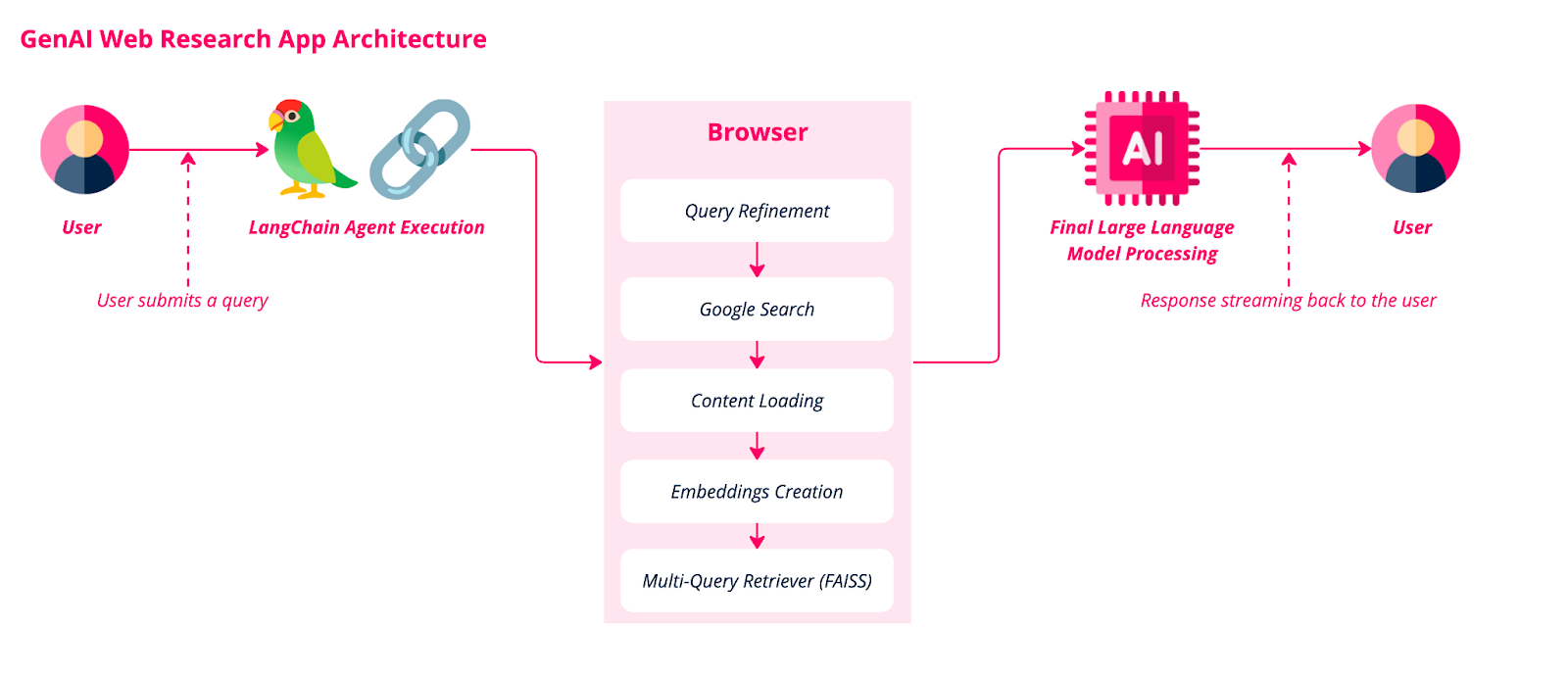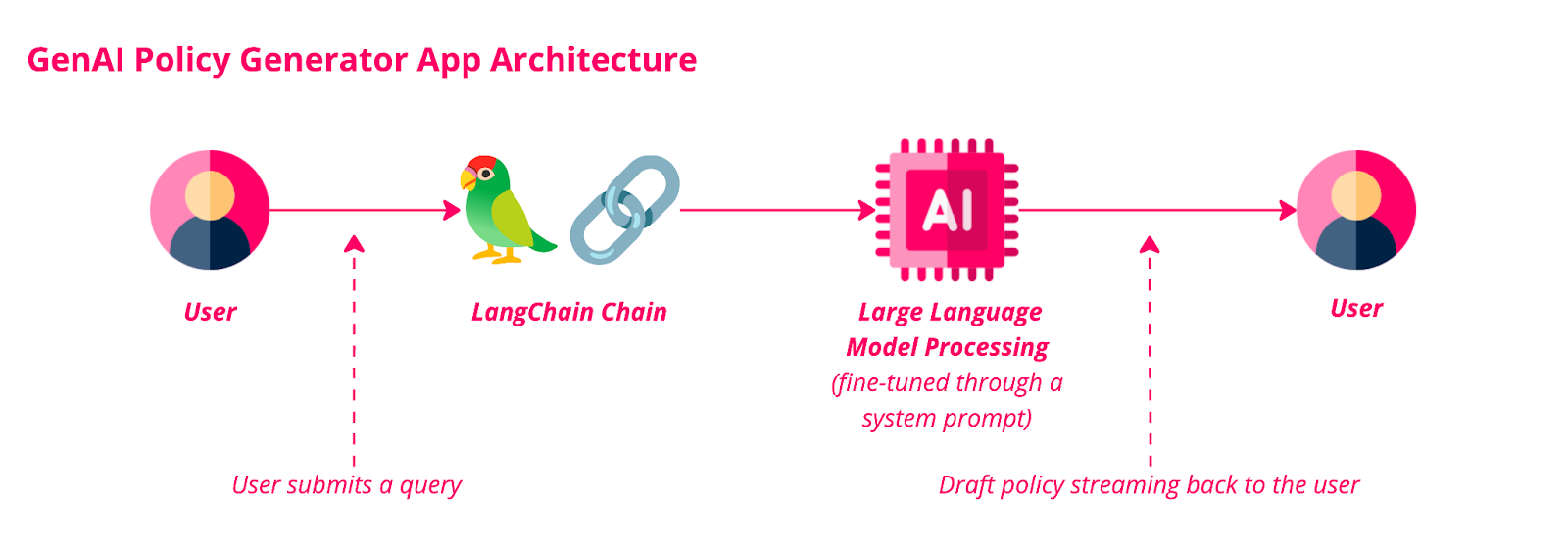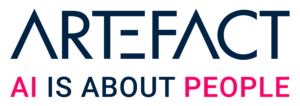The challenge
In industries where compliance and policy management are critical, drafting and maintaining up-to-date policies is a vital yet time-consuming task. Traditionally, organizations have relied on a manual process for researching competitors’ policies and creating their own. This involved labour-intensive web searches, data extraction, and content organisation in spreadsheets, followed by drafting documents from scratch. Consequently, this process is not only slow but also prone to inconsistencies and errors, resulting in inefficiencies that hinder productivity.
The solution
The solution to this challenge is an innovative web application powered by generative AI. It utilizes a LangChain agent with OpenAI’s latest omni model, GPT-4o, and incorporates two custom-developed tools designed to automate and enhance the policy drafting process.
Automated Web Research
The first tool focuses on streamlining the research phase. It refines user queries and conducts comprehensive searches across multiple predefined competitors using Google’s search API. What sets this tool apart is its ability to make these calls in parallel, allowing the system to retrieve, process, and analyse policy content from various sources simultaneously. The content is embedded using OpenAI’s embedding models and stored in a FAISS vector database, after which a similarity search is conducted. This parallel processing enables the AI agent to deliver a structured and detailed summary, including a comprehensive comparative analysis, in under five minutes.

AI-Driven Policy Drafting
The second tool is a generative AI model specifically trained to draft policies in the desired structure and format. It utilises the output from the web research tool to generate a complete policy draft that is both accurate and aligned with the required standards. The interactive chat interface allows users to make real-time adjustments, ensuring the final document meets all requirements.

The impact
The implementation of this AI-driven solution has significantly reduced the time and effort required for policy drafting. The “assessment” phase, which involves content prioritisation and benchmarking, has been cut from three days to just half a day. Similarly, the “structure” phase, which organises and finalises the content, now takes only half a day instead of the previous two days. This reduction in time has not only streamlined operations but also improved the consistency and accuracy of the final documents.


Looking ahead
This project highlights the transformative potential of generative AI in policy management across various industries. By automating critical tasks, we have helped organizations achieve greater efficiency and focus on higher-value activities. As we continue to explore and implement AI-driven solutions, we are excited about the future possibilities that will further enhance operational efficiency and strategic decision-making across various sectors.

 BLOG
BLOG




